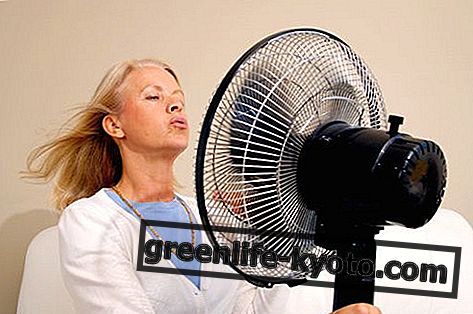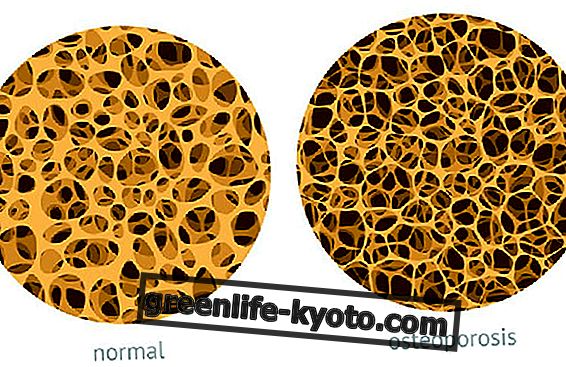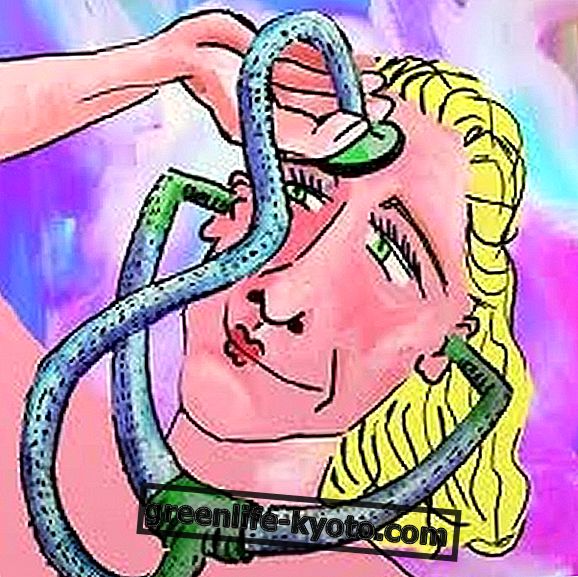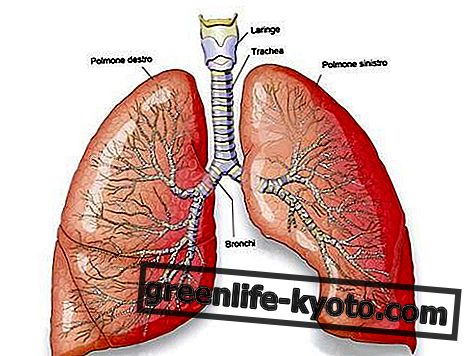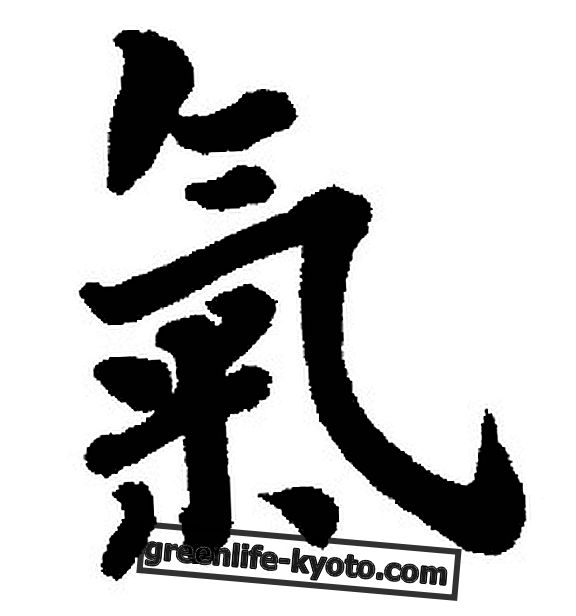Insomnia is a common disorder that consists of the inability to fall asleep and may be a symptom of other diseases. What are the causes of insomnia? What are the most effective natural remedies for treating it?
The hours pass and the minutes weigh. The night outside doesn't stop remembering how long it is. Insomnia is a common disorder that consists of the inability to fall asleep or subvert the normal sleep patterns .
It is often caused by stress, especially psychosocial ones (such as conflicting relationships in the workplace), depression, abuse of exciting substances, physical pain, food allergies, environmental disorders, habitual snoring associated with the presence of sleep apnea and the jet lag.
Effects of sleep deprivation

Conditioned insomnia means a frequent form of chronic insomnia characterized by a pervasive fear of not being able to sleep; a sort of vicious circle by virtue of which the fear of not sleeping translates into actual real insomnia caused first by a disturbing event, then by the insinuation of the fear of passing another sleepless night.
It is a reflexive emotional activation, which leads the subject to fall asleep more easily when he does not force himself to do so, for example when he is in front of the TV.
Symptoms of insomnia
Symptoms such as difficulty in falling asleep or a constant awakening during the night are to be evaluated based on the frequency. In fact, one of the most common ways to classify insomnia is by referring to the duration of the symptoms : transient is defined as the one that lasts less than a month, in the short term if it lasts for 1-6 months and chronic if it lasts over six months.
Depending on the moment in which one awakens one speaks then of initial, transient or terminal insomnia .
Causes
The causes of insomnia can be of different nature. The most frequent are:
- Stress
- Anxiety
- Depression
- Diseases and physical pain
- Menopause
- Thyroid hyperactivity
- Environmental factors
- Taking drugs
Diagnosis
The diagnosis of insomnia involves the collection of symptoms reported directly by the patient. Only in a second phase, to determine whether it is primary insomnia or a secondary disorder to another disease, diagnostic tests can be used such as EEG or polysomnography, a specific test for brain function and aimed at investigating cardiovascular parameters and respirators.
Insomnia occurs in many different ways, which is why it is clinically classified taking into account at least three parameters: duration, causes and type.
CARE FOR INSONNIA
Supply
In insomnia a sedative feeding on the central nervous system is useful. Relaxed foods are best served accompanied by a carbohydrate dinner: zucchini, green beans, pesto, boiled potatoes seasoned with oil, salt and parsley, marinated zucchini, fruit salad accompanied with pine nuts or almonds to facilitate sleep. Among the nutritional associations useful in insomnia we have:
- Risotto with lettuce: fry the lettuce cut into strips with oil and garlic, add water and when it boils again 100g of rice. Preparation is ready after twenty minutes;
- Rice and zucchini;
- Caramel apple and mulled wine, already mentioned in the "Fever", but also useful in insomnia and in states of agitation.
Caramel apple: cut an apple with the peel into slices in a pan and add a small cup of red wine, a spoonful of sugar, 2 cloves, 2 cm of cinnamon stick and the peel of a quarter of a lemon. It is cooked over a high heat until it is caramelized.
- Mulled wine: a cup of red wine of excellent quality is added a peel of a quarter of lemon, 3 cloves, ¼ of cinnamon stick, a tablespoon of sugar and starts to boil everything. When the boiling starts it sets the wine on fire, preserving the bactericidal and antibiotic power of the wine associated with the antimicrobial and antiviral actions of the other components.
- Potatoes and leeks: the leeks are cut into slices and cooked in a pan with a garlic and extra virgin olive oil. After 2/3 minutes add the potatoes and brown them briefly, cover them with water and let them cook for twenty minutes.
You can learn more about proper nutrition against insomnia
Herbal remedies for insomnia
Some of the medicinal plants, used for insomnia, help to relax the nervous or muscular or circulatory system, gently reconciling sleep ; others have hypno-inducing action, favor sleep and keep sleep prolonged, improving their quality.
Among the relaxing plants we find:
- Lemon balm : indicated for the nervous tension that affects the muscular system. The leaves of the plant, rich in essential oil, are soothing on the states of anxiety, and relaxing for the muscles. Its use is particularly indicated, therefore, in the presence of a general irritability picture, insomnia caused by excessive tiredness, nervousness, premenstrual syndrome, spasms and muscular tension;
- Passiflora : its leaves have a sedative and anxiolytic action, and make the plant an extremely effective remedy in fighting insomnia, because they stimulate sleep, without nocturnal awakenings, without producing a sense of morning numbness, and narcotic effects or addiction; in the event of stress, anxiety and anxiety; in the forms of hysterical, phobic, obsessive and post-traumatic neurosis;
- Hawthorn and Linden act as spasmolytics, sedatives and natural anxiolytics . Their hypotensive action on the cardio-circulatory system is useful in case of insomnia, especially in very nervous patients, in which it reduces emotion, tachycardia, palpitations, agitation, anxiety.
The plants that induce sleep are:
- Valerian : the roots have sedative, relaxing and hypo-inducing properties, as they reduce the time needed to fall asleep and improve the quality of sleep, therefore it is indicated in all its disorders, insomnia and anxiety. relaxation and induction of sleep;
- Escolzia : its aerial parts (stem, flower) decrease the period of falling asleep and produce the maintenance of a good quality of sleep, all night long, avoiding sudden awakenings. The use of the plant is therefore indicated in case of anxiety, stress, sleep disturbances (insomnia, nocturnal awakenings), psychosomatic disorders, irritability, mood bending, psychic pains, nervousness;
- Hops : it is commonly used for its calming effect on the nervous system and for its sedative action is used to improve sleep. Dried flowers can be sewn into a pillow to aid in insomnia.
Among the gemmoderivati we find that of the Tiglio ( Tilia Tomentosa ), considered the natural tranquilizer par excellence. For this reason it is successfully used in neurovegetative dystonia and in anxiety syndromes, hyper-emotionality, adult and child insomnia, because it has an anxiolytic, antispasmodic and sedative action, able to improve sleep quality, especially when insomnia is caused by stress, nervousness or palpitations.
You can learn more about how to treat insomnia with herbal medicine

Bach flowers for insomnia
Bach flower remedies act on mental and physical relaxation when thoughts and concerns hinder sleep; others on anxiety and nervous tension accumulated during the day. Now let's see which Bach flowers are associated with different forms of insomnia:
- Hornbeam : is the remedy for people suffering from insomnia due to mental overload, whose sleep is not restorative. The remedy is indicated for people who feel exhausted, tired and unmotivated; who doubt their ability to succeed every day they accuse the "Monday morning syndrome" (difficulty to start the day), because of the routine, of a repetitive and routine life;
- White chestnut : it is indicated for people suffering from insomnia, because they mull over the same thoughts without being able to sleep. If they wake up they don't fall asleep anymore, they can't relax because the mind returns to a specific event. This remedy helps those who are tormented by mental loops ;
- Impatiens : it is the remedy for people suffering from insomnia, because they are unable to relax. This remedy is given to those who show an acceleration, who have a problem with time and live in anticipation anxiety. This leads to the inability to relax and adapt to the harmonious rhythm of one's being;
- Walnut : it is indicated to adapt the organism to seasonal, climatic changes, protecting from the pressure that the world exerts on us. Divorce, separation, removal, change of job etc. they are all situations that can be a source of strong emotional stress and cause insomnia. This remedy is supportive in situations of transition or great change;
- Agrimony : the remedy for those who wake up in the middle of the night in the grip of anxiety, caused by an inner torment that is hidden from others. This floral remedy intervenes on the anxious state that comes to prevent sleep or interrupt it during the night. The remedy helps to manage problems without hiding them, giving serenity and optimism in facing them;
- Red Chestnut : is indicated for treating insomnia that results from excessive apprehension in those who let themselves be overcome by bad thoughts, by the fear that something terrible may happen to their loved ones. The remedy helps to relax and keep anxiety under control, encouraging the development of positive thoughts.
Traditional Chinese Medicine
In traditional Chinese medicine, each organ of the body has a psychic content, which means that we also store mental energies within the body. Insomnia often arises from energy imbalances, intoxications and poorly functioning organs that damage mental energy: for example, a poisoned liver affects ease of sleep. In addition to the Liver meridians, it is useful to treat those of the Heart and Spleen.
Acupuncture mobilizes the qi, the energy of the Liver, and reassures the shen, through work on these points:
- SHEN MEN (on the wrist crossbar), which tones and regulates the cardial qi ;
- XING JIAN (between the big toe and the second toe), which tones and regulates the Liver, and cools the Blood;
- FENG LONG (between the lower edge of the kneecap and the vertex of the external malleolus), which dissolves moisture, mobilizes the qi of the Spleen and Stomach, calms the shen and favors the descent of the yang .
- TAI XI (between the apex of the internal malleolus and the Achilles tendon) tones and regulates renal qi and purifies heat.
- TAI CHONG (on the back of the foot, in the depression between the I and II metatarsus), which regulates and cools the blood.
Acupressure, which is based on the principles of traditional Chinese medicine, can also be a good remedy for insomnia.
Aromatherapy for insomnia
The essential oils used in the treatment of insomnia, besides facilitating sleep and keeping it prolonged, improve its quality, performing a general harmonizing action . They are used both for environmental diffusion (1 drop per square meter of the bedroom), through relaxing baths (10 drops in the bathtub) or applied through aromatherapy massages (5-7 drops in a vegetable oil).
- Essential oil of lavender: it reconciles sleep and is very useful in over-excited children, who fall asleep with difficulty. It rebalances the central nervous system, because it is simultaneously both tonic and sedative; calm anxiety, agitation, nervousness; performs an effective relaxing action in case of emotional disorders, insomnia, hypertension, tachycardia, stress.
- Bergamot essential oil : plays a calming action on the nervous system, counteracting anxiety states and is an effective remedy in case of insomnia, because it relaxes, reconciling sleep.
- Basil essential oil : indicated in case of mental fatigue, intellectual surmenage; it is used to counteract anxiety, insomnia, motion sickness, dizziness, and stress.
Homeopathy
In case of insomnia due to excessive mental activity (thoughts, obsessive thoughts, etc.): Coffea cruda 5 CH and Gelsenium 9 CH (2 + 2 granules in the evening, to be repeated if necessary during the night). If instead insomnia is due to coffee abuse, perhaps even food: Coffea cruda 5 CH and Nux Vomica 9 CH (2 + 2 granules in the evening, to be repeated if necessary during the night). In case of insomnia with tiredness and agitation at night, Rhus Toxicodendron 5 CH (5 granules in the evening).
Exercises in case of insomnia
It is very important not to alter the sleep-wake rhythm if you practice sport at a competitive level. Calculate the hours of sleep you need, try to go to bed every night and get up every morning at the same time. If you go to sleep very late one night, avoid prolonged sleep throughout the morning, as this may lead you to be late again the following day. If you wake up in the middle of the night and find it difficult to fall asleep again, stay in bed and tidy up that tormenting is not a solution; better to get up and do something relaxing.
Yes to relaxing activities before going to bed (gentle exercise, a book, a good movie, music, pampering). During the day, practice your favorite physical activity regularly and avoid overeating at dinner.
Yoga is a panacea for insomnia caused by stress or difficult work situations or concerns of various kinds; also excellent in cases of conditioned insomnia, characterized by the pervasive fear of not being able to sleep. Specific positions, if practiced consistently, guarantee long-term relaxation.
Richard Miller, a psychologist and yoga teacher, has created a system that combines the age-old tradition of yoga techniques with recent sleep studies. It is called IRest, an abbreviation for Integrative Restoration, a practice that transforms (transformation is the principle of shamanic forms, of the oldest psychophysical disciplines). In this practice the metamorphic effect is strengthened because meditation and yoga Nidra are combined with psychological therapy and the transformation is catalyzed. It is a relaxing and therapeutic guided meditation.
READ ALSO
Small and natural remedies for insomnia
Other articles on insomnia
> Bach flowers for insomnia
> Insomnia and hypnosis
> Take care of insomnia
> The benefits of lithotherapy in insomnia and in anxiety and depressive states
> Naturopathy and insomnia
> Insomnia goodbye thanks to passion flower
> How to calculate the hours of sleep we need
> Melatonin, zinc and magnesium against sleep disorders
> Natural remedies for summer insomnia
> How to promote children's sleep
> Insomnia from jet lag, how to overcome it
> Foods to combat summer insomnia
> Insomnia in pregnancy, causes and remedies
> Foot reflexology for insomnia
> What are the causes of insomnia in children?
> Pink salt and honey for insomnia
> Linden against insomnia
With the collaboration of Veronica Pacella for nutrition, Alessandra Romeo for phytotherapy, flower therapy, aromatherapy


